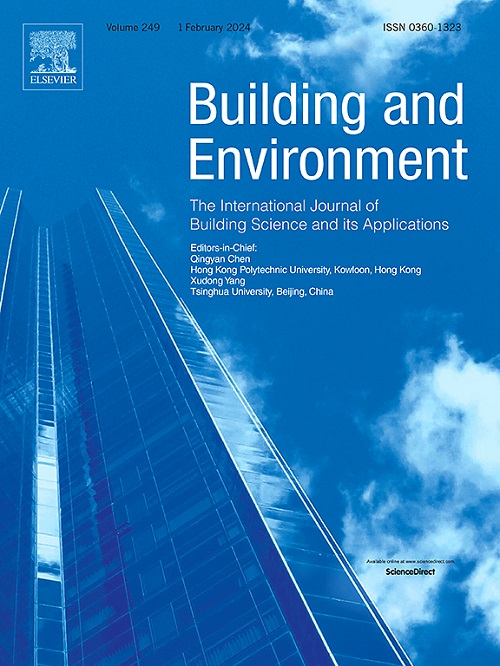Unsupervised automated fault detection and diagnosis for light commercial buildings’ HVAC systems
IF 7.1
1区 工程技术
Q1 CONSTRUCTION & BUILDING TECHNOLOGY
引用次数: 0
Abstract
Fault detection in light commercial building HVAC systems can significantly improve the energy efficiency of this class of buildings. A light commercial building is a commercial structure with fewer than six stories and a floor plan area of less than 2500 ft². Data extracted from existing buildings in this class are generally unlabeled, raw, and characterized by many inconsistencies and discontinuities, making Automated Fault Detection and Diagnosis (AFDD) particularly challenging. This study aims to develop an unsupervised AFDD method tailored for light commercial buildings, which is transferable among different HVAC configurations within this building class. The method is designed to handle unlabeled, incomplete, and raw datasets provided by their Building Energy Management Systems (BEMS). Principal Component Analysis (PCA) was selected as the core method due to its scalability and transferability. Specific techniques were introduced to address time series analysis and fault detection and diagnosis (FDD) based on the dynamics of the system, using appropriate window sizing. The method was validated using two different light commercial buildings with distinct configurations and data availability. The primary building, an office in Montreal, Canada, and the secondary building, a small industrial facility in Ireland, served as the test cases. The proposed method demonstrated promising results in detecting and isolating faulty inputs, providing information on the severity levels and locations of faults. It successfully identified whether faults were at the level of the central system or within specific zones in both studied cases.
轻型商业建筑暖通空调系统的无监督自动故障检测和诊断
轻型商业建筑暖通空调系统的故障检测可显著提高这类建筑的能源效率。轻型商业建筑是指层数少于六层、平面面积小于 2500 平方英尺的商业建筑。从该类现有建筑中提取的数据通常是无标记的原始数据,存在许多不一致和不连续性,这使得自动故障检测和诊断 (AFDD) 尤其具有挑战性。本研究旨在开发一种针对轻型商业建筑的无监督 AFDD 方法,该方法可在该建筑类别中的不同暖通空调配置之间进行转换。该方法旨在处理由楼宇能源管理系统(BEMS)提供的无标记、不完整和原始数据集。由于主成分分析法(PCA)具有可扩展性和可移植性,因此被选为核心方法。此外,还引入了一些具体技术,以根据系统动态,利用适当的窗口大小,进行时间序列分析和故障检测与诊断(FDD)。该方法通过两栋不同配置和数据可用性的轻型商业建筑进行了验证。主要建筑是加拿大蒙特利尔的一座办公楼,次要建筑是爱尔兰的一座小型工业厂房。所提出的方法在检测和隔离故障输入、提供有关故障严重程度和位置的信息方面取得了可喜的成果。在所研究的两个案例中,它都成功地确定了故障是发生在中央系统层面,还是发生在特定区域内。
本文章由计算机程序翻译,如有差异,请以英文原文为准。
求助全文
约1分钟内获得全文
求助全文
来源期刊

Building and Environment
工程技术-工程:环境
CiteScore
12.50
自引率
23.00%
发文量
1130
审稿时长
27 days
期刊介绍:
Building and Environment, an international journal, is dedicated to publishing original research papers, comprehensive review articles, editorials, and short communications in the fields of building science, urban physics, and human interaction with the indoor and outdoor built environment. The journal emphasizes innovative technologies and knowledge verified through measurement and analysis. It covers environmental performance across various spatial scales, from cities and communities to buildings and systems, fostering collaborative, multi-disciplinary research with broader significance.
 求助内容:
求助内容: 应助结果提醒方式:
应助结果提醒方式:


